Gastroesophageal Reflux Disease (GERD) is when abnormal reflux of stomach contents into the esophagus causes unpleasant symptoms. Along with the previously swallowed food, hydrochloric acid and digestive enzymes produced in the stomach also return to the esophagus, causing a burning sensation (heartburn).
The occasional heartburn happens to most people. However, if you experience it more than twice a week, it indicates that it might be something more serious.
This disease is one of the most commonly diagnosed digestive tract diseases and affects about 20% of people in the US. The frequency of gastroesophageal reflux disease goes up as people grow older. GERD occurs with similar frequency in men and women, but its complications are observed more often in men.
The muscle between the esophagus and the stomach, called the lower esophageal sphincter, relaxes when swallowing, allowing food to pass into the stomach. When food goes into the stomach, it causes the muscles to contract quickly, so food and stomach acid cannot move back into the esophagus.
When the lower esophageal sphincter contracts abnormally or is inefficient, the stomach's content, including gastric juice, can flow back into the esophagus, causing GERD.
The development of gastroesophageal reflux disease can also occur in certain diseases, i.e., diabetes, scleroderma, diseases associated with chronic alcohol abuse, and some hormonal disorders.
Some medications may also contribute to developing GERD, especially oral contraceptives or drugs used in ischemic heart disease, medications for hypertension, and lung diseases.
The development of reflux is also favored by a hiatal hernia (the upper part of the stomach is pushed into the chest through a thinner spot in the diaphragm – the muscle that separates the lungs and abdomen). When the upper part of the stomach is pressed above the diaphragm, it promotes the regurgitation of stomach contents into the esophagus.
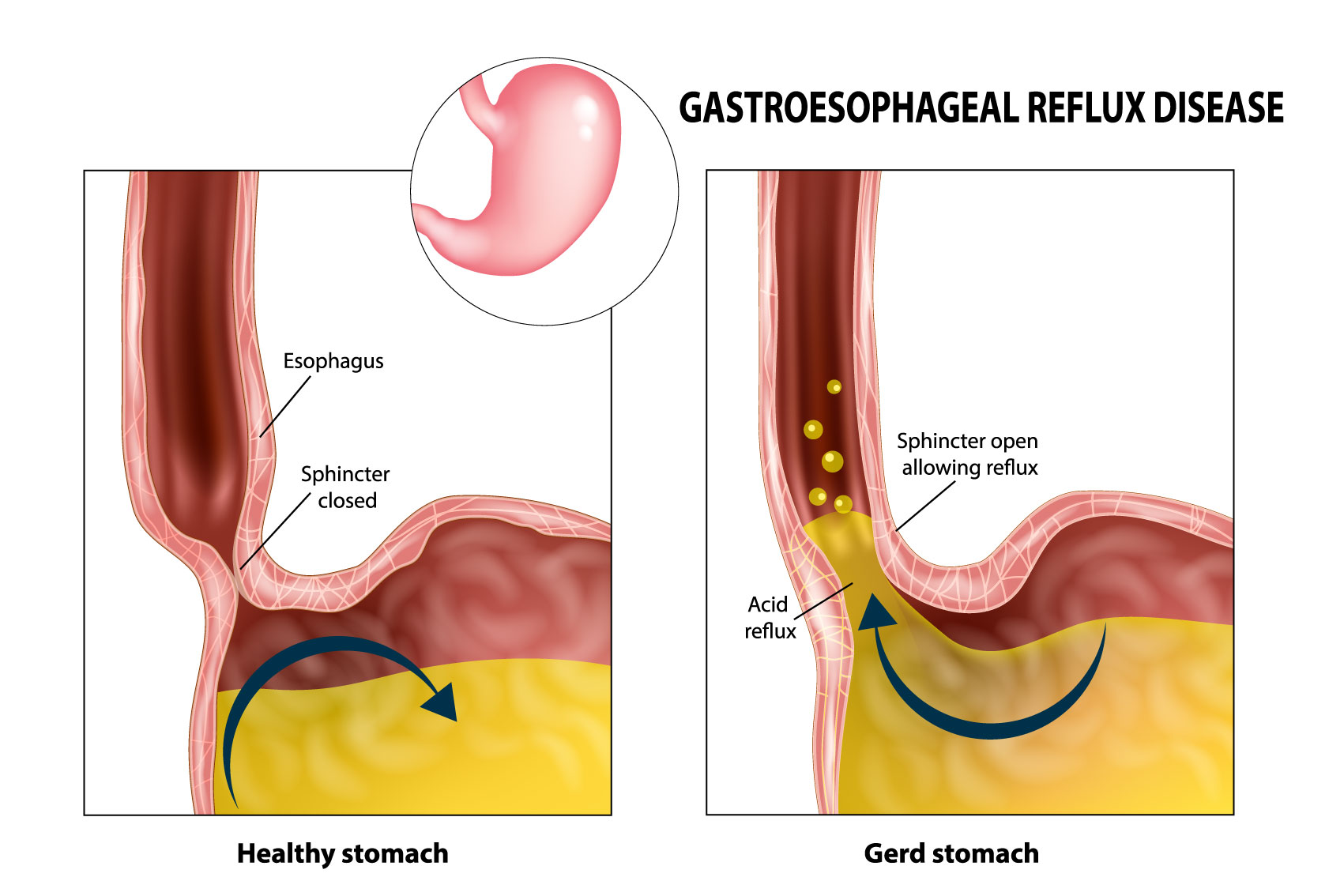
GERD is a disease that most often manifests itself in:
The symptoms![]() worsen in lying, especially after a heavy or fatty meal, and when bending over.
worsen in lying, especially after a heavy or fatty meal, and when bending over.
Some symptoms force you to see a doctor immediately, including bleeding from the esophagus and problems or pain during swallowing (dysphagia).
Occasionally, GERD may not cause symptoms and may be found incidentally during an endoscopy.
The doctor collects a detailed interview to diagnose GERD and asks about the symptoms, their course in time, possible accompanying diseases, and medications taken.
Then, if the patient has typical symptoms of reflux, he will recommend lifestyle modifications and start treatment. Depending on the results of this procedure, the physician will order a continuation of treatment or further diagnostics at a follow-up visit.
Many tests can help diagnose GERD and detect its complications.
Gastroscopy involves inserting a flexible camera down the throat and into the esophagus, stomach, and duodenum (the initial part of the small intestine). During the examination, if necessary, samples from the mucous membrane of the digestive tract are taken for microscopic examination. Gastroscopy is the only method of obtaining such specimens for microscopic assessment without surgery. This procedure lasts about 30 minutes after applying a local anesthetic. It does not require admission to the hospital.
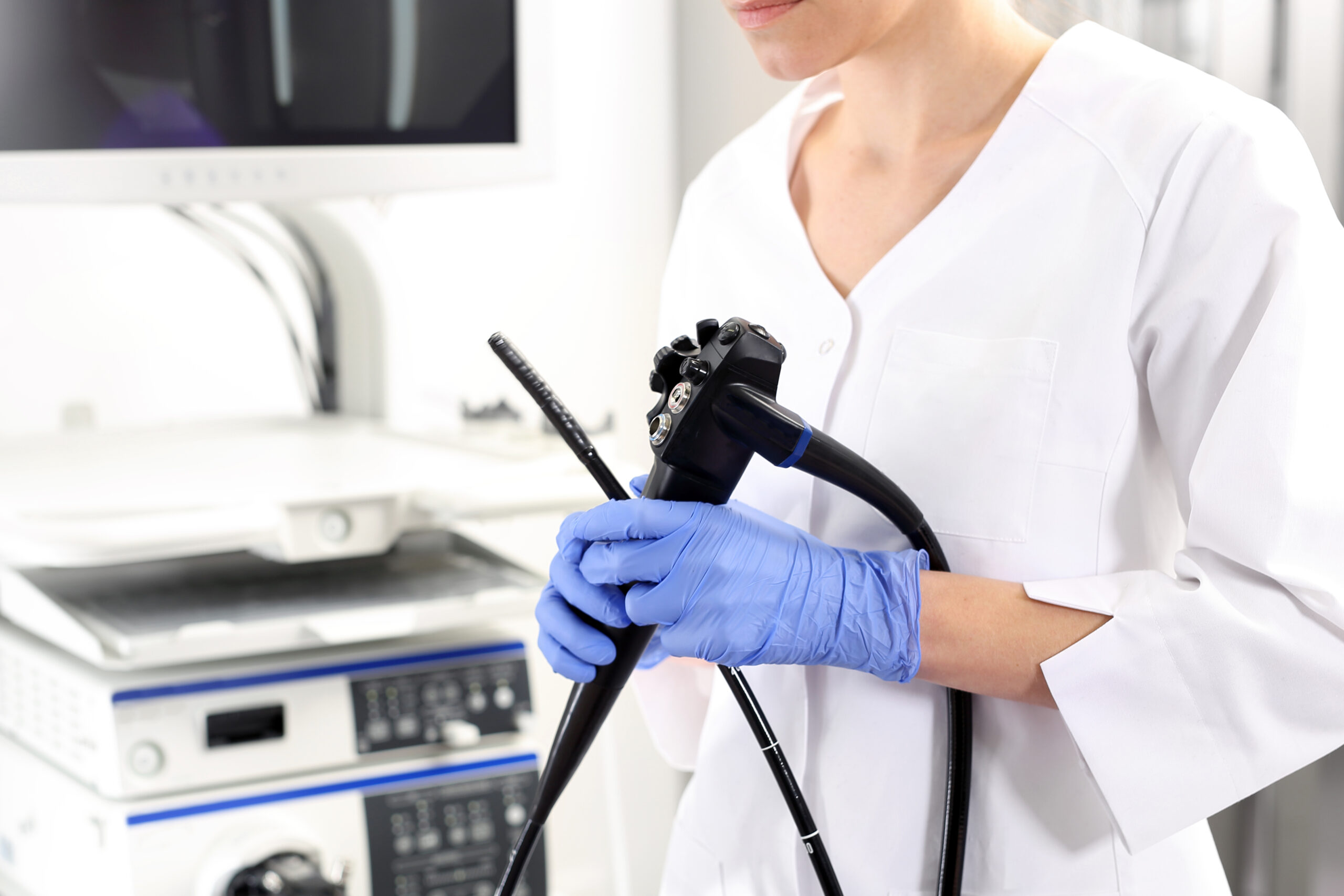
Esophageal manometry examines the esophagus to assess the motility of the esophageal muscles. This exam is typically conducted on individuals who have difficulty swallowing. The test makes it possible to evaluate both the strength of contraction of the esophageal muscles and their coordination with swallowing.
A medical specialist conducts an X-ray to view the esophagus, stomach, and initial part of the small intestine, known as the duodenum. This test involves taking X-ray images after the patient has drunk a contrast substance. The substance coats the upper digestive tract's lining, allowing the physician to assess its structure. Abnormalities such as esophageal strictures, hiatal hernias, polyps, diverticula, and ulcers can be detected with this test.
The esophageal pH probe test is a test that measures the acidity in the lower part of the esophagus. They are performed using a special probe inserted through the nose.
The study is continued over 24 hours to observe the pH day and night. The patient must note the meals consumed and when there are reflux symptoms. The records are compared with the pH chart, which allows the relationship between its decrease and symptoms to be established.
Factors predisposing to gastroesophageal reflux disease include:
If reflux symptoms occur, your lifestyle![]() , especially your diet, is worth modifying.
, especially your diet, is worth modifying.
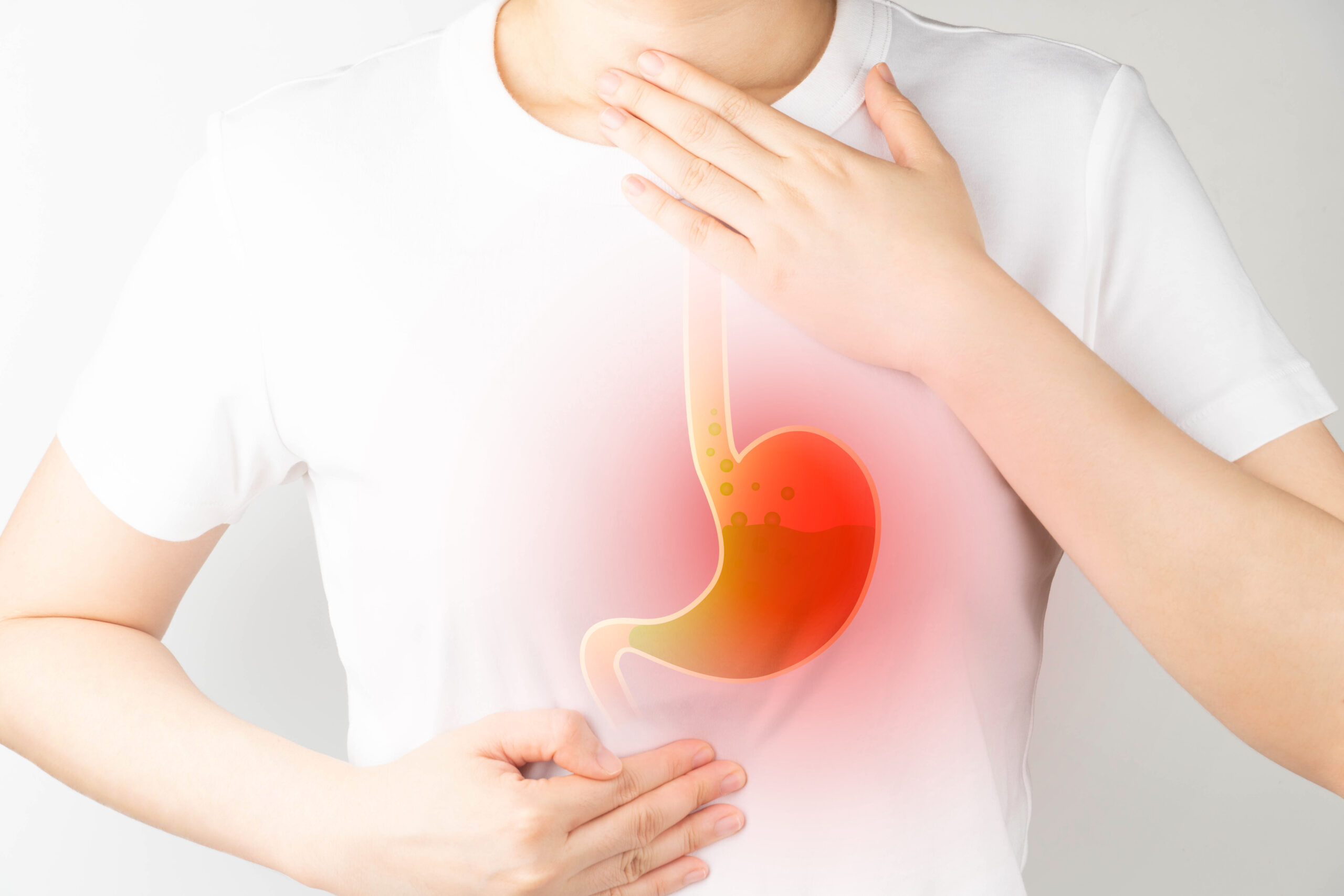
In addition to lifestyle modification, treatment often begins with drugs that strongly reduce gastric acid production (proton pump inhibitors or PPIs![]() ). They are usually used once a day, on an empty stomach, in the doses prescribed by the doctor. In the event of treatment failure, the doctor may decide to increase the amount of the drug or add to the therapy another medication, histamine H2 receptor blocker, administered at bedtime.
). They are usually used once a day, on an empty stomach, in the doses prescribed by the doctor. In the event of treatment failure, the doctor may decide to increase the amount of the drug or add to the therapy another medication, histamine H2 receptor blocker, administered at bedtime.
Antacids containing various combinations of aluminum, calcium, magnesium, and alginic acid compounds may provide temporary relief, but long-term use is not recommended without consulting a doctor.
When pharmacological treatment does not bring improvement despite the maximum doses of drugs, surgical treatment to strengthen the lower esophageal sphincter muscle is considered.
People with symptoms of reflux should avoid products such as:
Food that is considered helpful for people with GERD![]() include:
include:
The amount of food consumed and the pace at which it is consumed are also significant. Consuming large meals contributes to more frequent episodes of reflux, and if these meals are characterized by a high fat content, the severity of symptoms is additionally increased. Therefore, people with gastroesophageal reflux disease should eat 4–6 small meals a day at fixed times. Meals should be eaten slowly because fast food consumption promotes the consumption of more significant amounts of food than necessary.
In pregnant women![]() , the preferred treatment of gastroesophageal reflux disease is non-pharmacological – lifestyle modification and appropriate diet. Medications should be used for the shortest possible time and in the lowest possible dose. Antacids are the most commonly used because they are not absorbed from the gastrointestinal tract. Proton pump inhibitors, if indicated, can also be used during pregnancy.
, the preferred treatment of gastroesophageal reflux disease is non-pharmacological – lifestyle modification and appropriate diet. Medications should be used for the shortest possible time and in the lowest possible dose. Antacids are the most commonly used because they are not absorbed from the gastrointestinal tract. Proton pump inhibitors, if indicated, can also be used during pregnancy.
All medications during pregnancy should always be used after consulting doctors and according to their recommendations.
Barrett's esophagus![]() is a condition in which epithelial cells typical of the stomach appear in the lower part of the esophagus. It is a complication of long-term, untreated gastroesophageal reflux disease. Those diagnosed with Barrett's esophagus are more prone to developing esophageal and stomach cancers, and they need to be monitored through endoscopy regularly.
is a condition in which epithelial cells typical of the stomach appear in the lower part of the esophagus. It is a complication of long-term, untreated gastroesophageal reflux disease. Those diagnosed with Barrett's esophagus are more prone to developing esophageal and stomach cancers, and they need to be monitored through endoscopy regularly.
This disorder chiefly affects Caucasian men and those who are overweight.
A reflux of the stomach's acidic contents into the esophagus irritates the esophageal lining. If this situation is repeated often, the esophagus becomes inflamed (esophagitis![]() ), which can result in esophageal ulcers and bleeding.
), which can result in esophageal ulcers and bleeding.
In some people with GERD, regular irritation of the lining of the esophagus causes scarring, which contributes to the narrowing of the lumen of the esophagus![]() . This makes it difficult for food to pass from the mouth to the stomach.
. This makes it difficult for food to pass from the mouth to the stomach.
Those who suffer from GERD may experience acid from the stomach coming up into the esophagus and further irritating the respiratory system organs (like the larynx and sinuses). Therefore, untreated GERD can cause chronic sinusitis or laryngitis![]() .
.
Some people with GERD experience hoarseness, which results from irritation of the vocal cords (part of the larynx) by the stomach's acidic contents.
Studies show that 30 to 80% of asthma patients have GERD![]() . The reason gastroesophageal reflux disease is common in people with asthma is unknown. GERD treatment often helps with alleviating asthma symptoms.
. The reason gastroesophageal reflux disease is common in people with asthma is unknown. GERD treatment often helps with alleviating asthma symptoms.
In chronic GERD, frequent regurgitation of the stomach contents causes the acids in the gastric juice to destroy the surface of the teeth, causing their erosion![]() .
.
People with gastroesophageal reflux disease have a higher risk of developing esophageal cancer![]() . It is exceptionally high in people who have previously developed Barrett's esophagus.
. It is exceptionally high in people who have previously developed Barrett's esophagus.
Gastroesophageal reflux disease is a chronic disease. If you experience it, you will likely have to take medications for a long time. However, in some cases, if the cause of the disease is eliminated (like surgical treatment of hiatal hernia), GERD may go away permanently.
Reflux disease is not life-threatening, but it can significantly limit daily activities, and constant treatment is necessary.
The prognosis is good for mild disease. If left untreated, severe gastroesophageal reflux disease can lead to such serious complications as esophageal stricture, gastrointestinal bleeding, and even esophagus cancer.
Experts believe several lifestyle factors can be modified to reduce the likelihood of developing gastroesophageal reflux disease. These factors include:
Heartburn happens to most people occasionally, and it's not a cause for concern if it happens from time to time. However, if it happens to you often and you live with it daily, then you should go to your GP, who will decide on further management or referral to a specialist in the digestive tract. A medical professional that specializes in gastrointestinal issues is known as a gastroenterologist.
Table of Contents
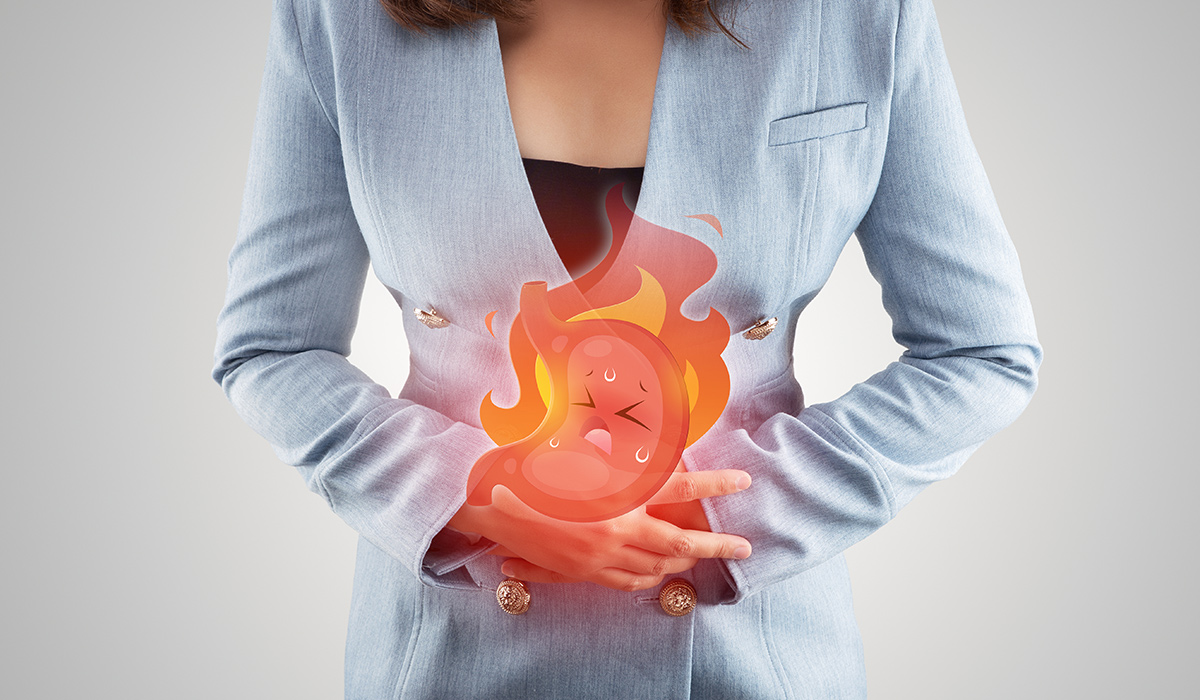
In chronic acid reflux, also known as gastroesophageal reflux disease (GERD), excessive acid in the stomach flows back to the… read more »
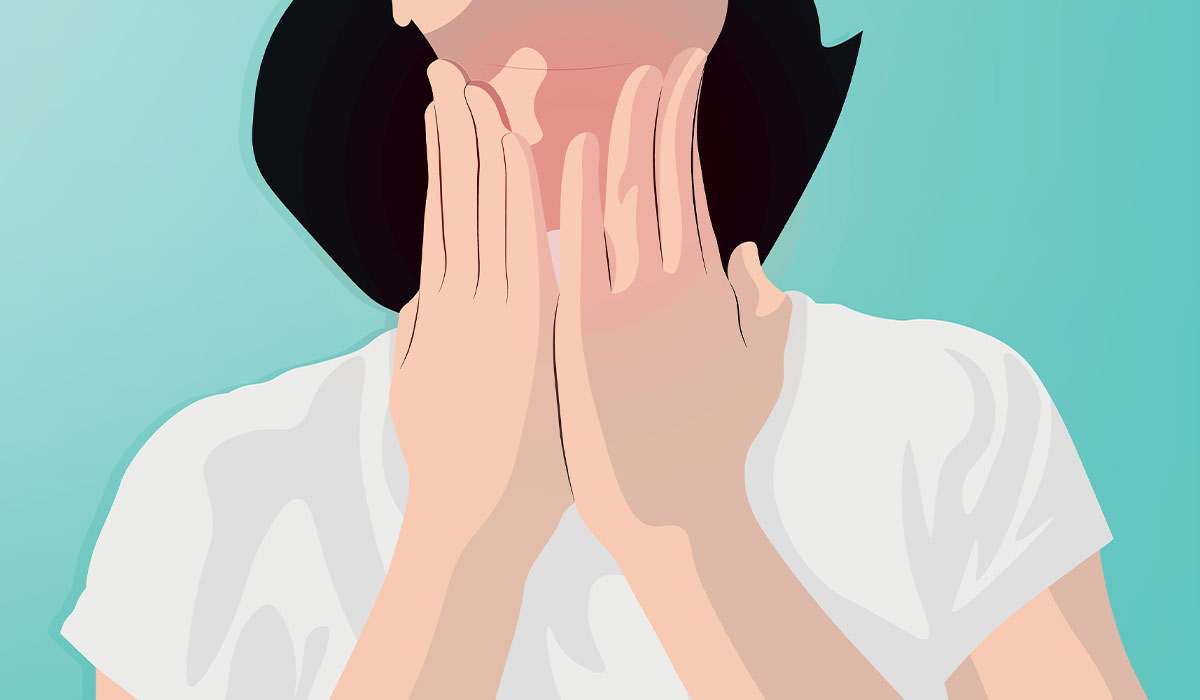
Esophagitis is inflammation of the esophagus. Most often, it is caused by acid reflux. What are its symptoms? How is… read more »
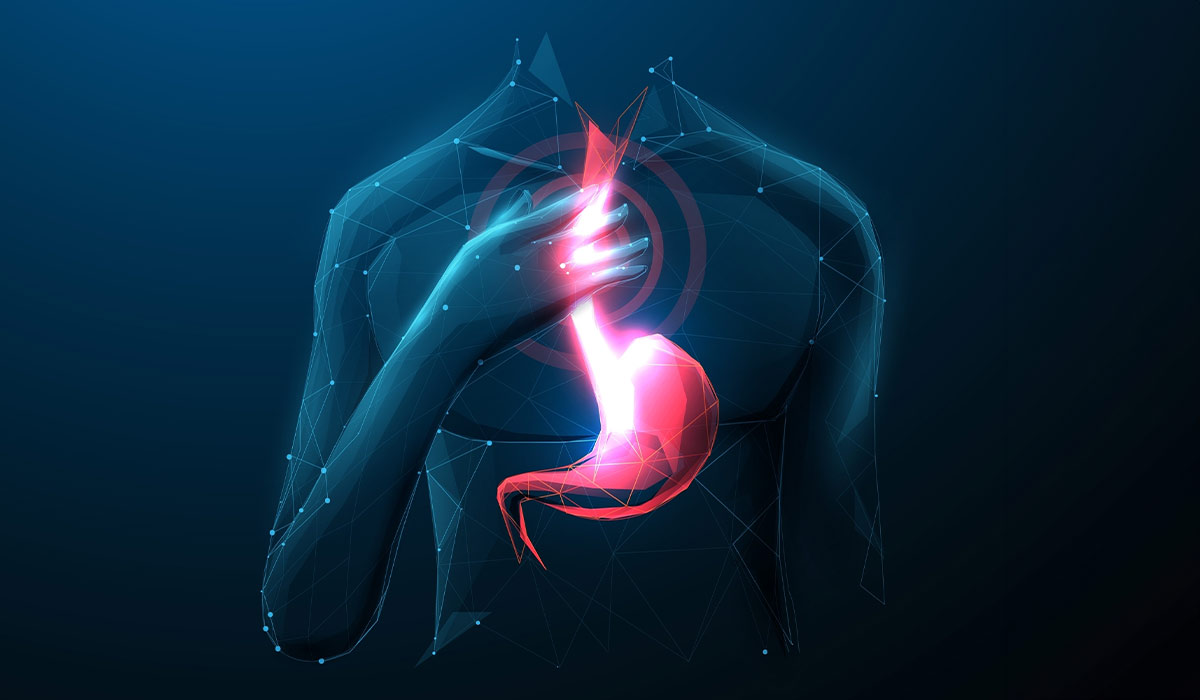
Heartburn is a common condition but it can also be a symptom of illness. Read the article and find out… read more »
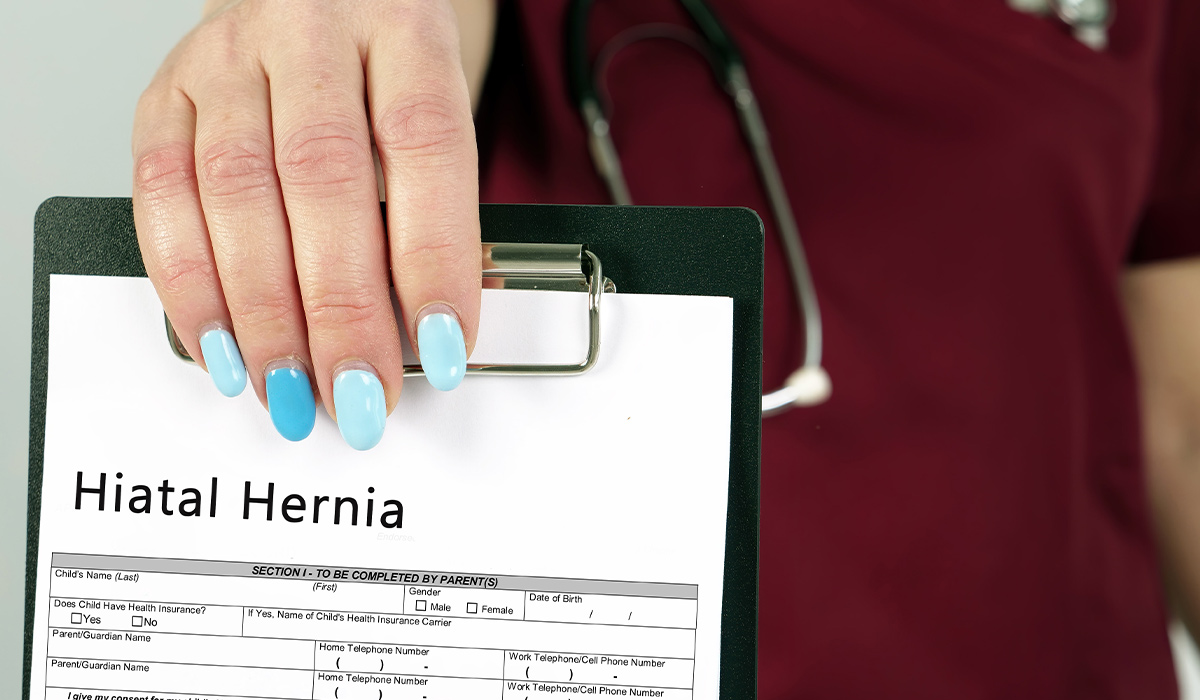
A hiatal hernia is a condition where the upper part of the stomach protrudes into the chest. Who is at… read more »
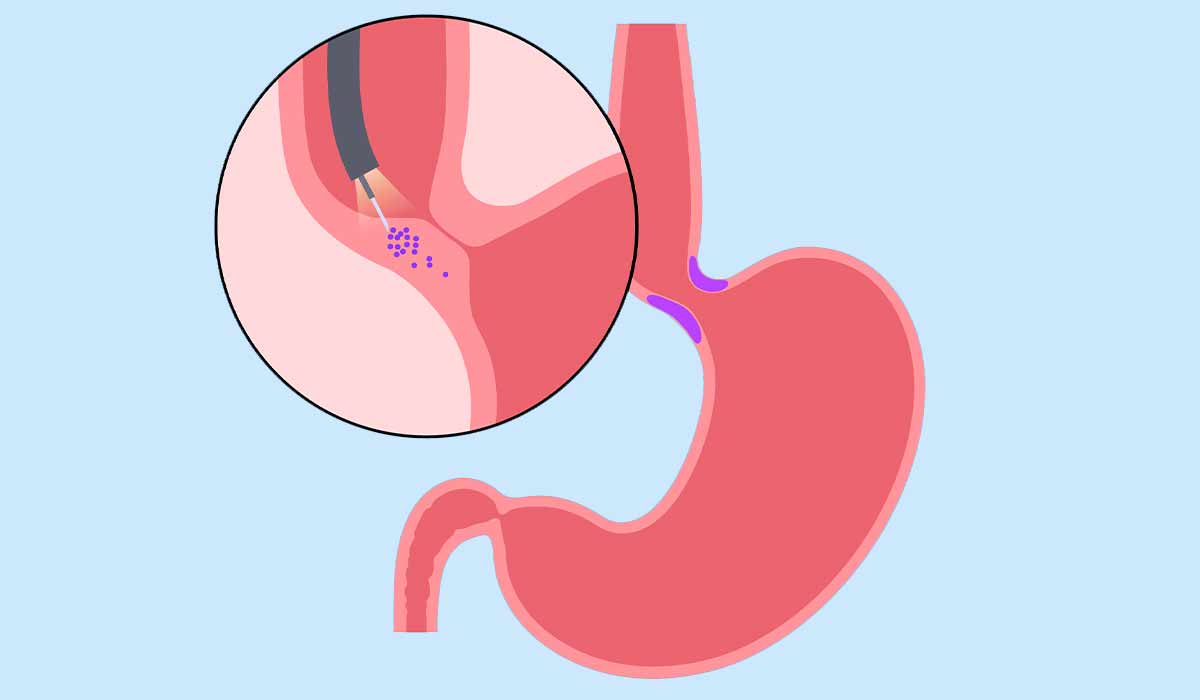
Achalasia is a motor disease of the esophagus. What are the causes and symptoms of achalasia? You can find this… read more »
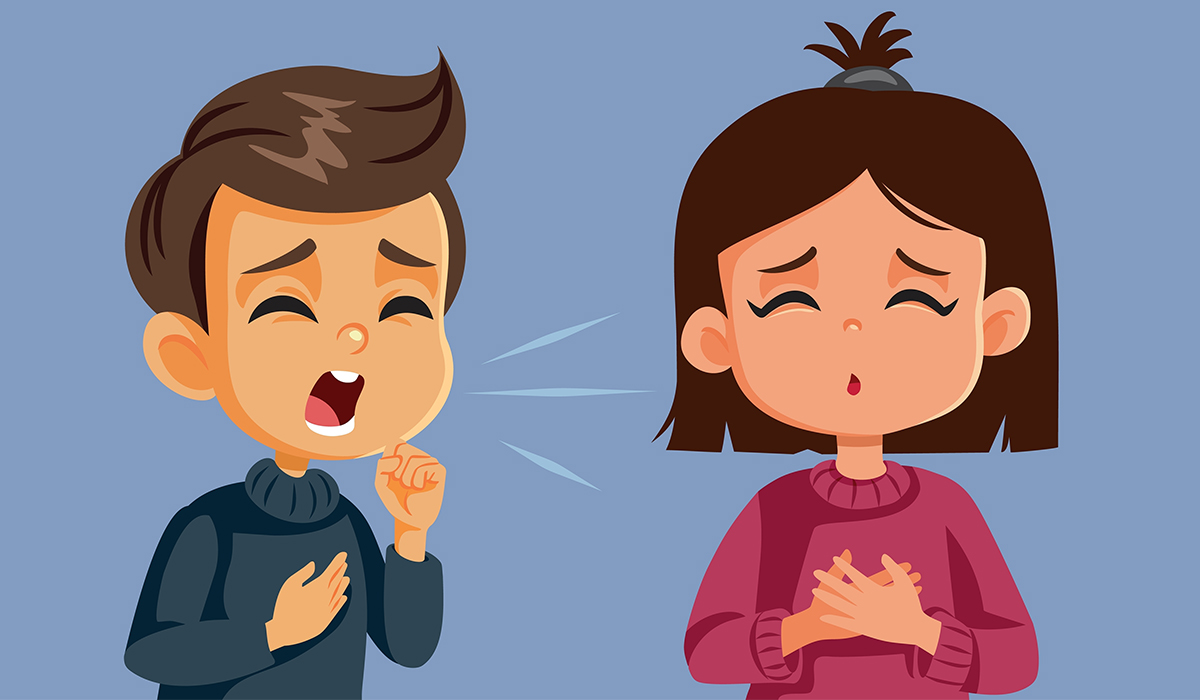
Cough is a natural, necessary reflex that protects the body from factors such as germs and pollens. When it is… read more »
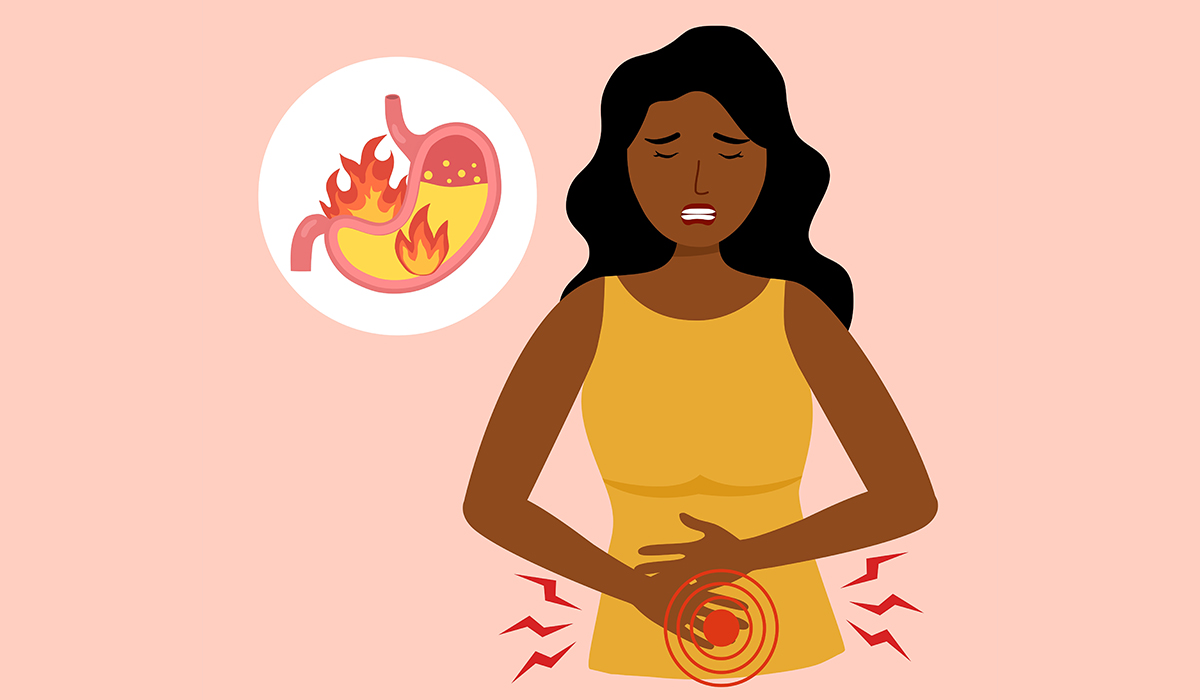
Indigestion is a set of symptoms related to problems with the digestive system. What causes this condition? What is the… read more »
Post nasal drip refers to an accumulation of mucus in the back of the throat, which results in a cough,… read more »
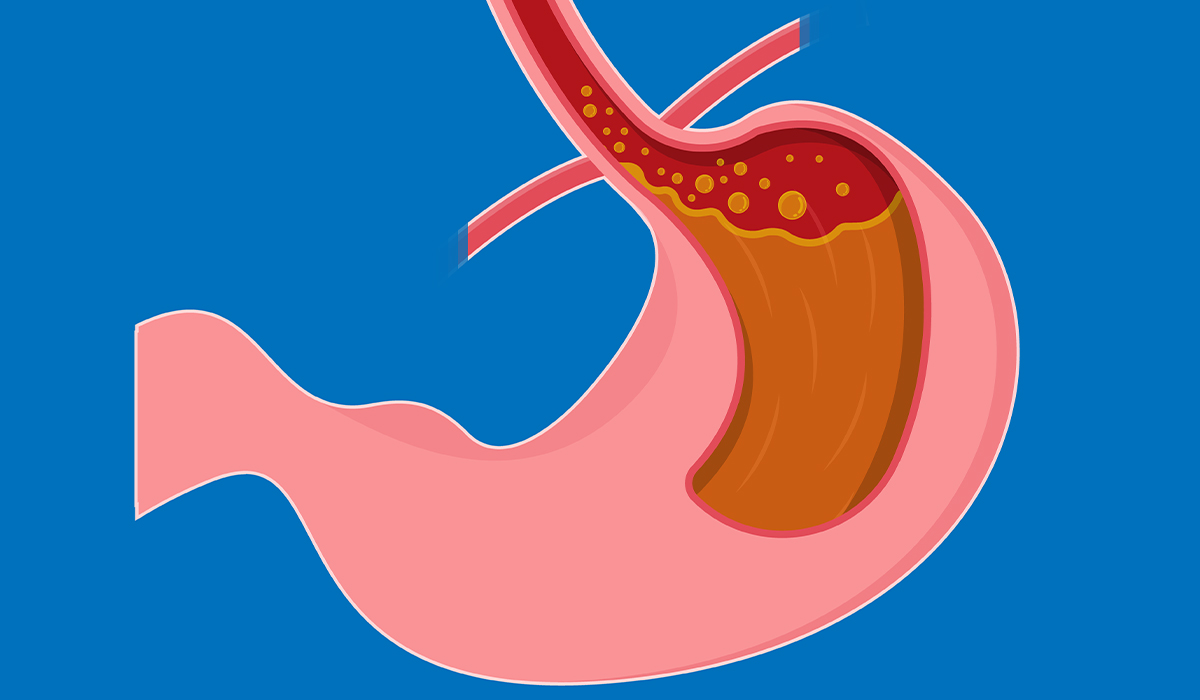
Zollinger-Ellison Syndrome is a condition that can cause uncharacteristic symptoms. Treatment is important as the disease can be fatal. Learn… read more »